
Chitwan: The Wilderness of Nepal
Chitwan, located in the southern part of Nepal, is a treasure trove for nature lovers and adventure seekers. The city is home to the Chitwan National Park, a UNESCO World Heritage site, renowned for its rich biodiversity, including the endangered one-horned rhinoceros and Bengal tiger. The park offers a unique jungle safari experience, where you can explore the dense forests on the back of an elephant or in a jeep, and even take a tranquil canoe ride along the Rapti River, spotting crocodiles and a myriad of bird species. Beyond the national park, Chitwan offers a glimpse into the traditional Tharu culture. Visit the Tharu villages to witness their distinct lifestyle, architecture, and vibrant folk dances. The locals are known for their warm hospitality, and engaging with them provides a deeper understanding of the region's cultural tapestry. You can also enjoy a stay in one of the many eco-lodges and resorts that blend seamlessly with the natural surroundings, offering comfort and sustainability. Chitwan's allure extends to its scenic beauty, with lush green landscapes, serene rivers, and picturesque sunsets. Whether you are exploring the wilderness, learning about local traditions, or simply soaking in the natural beauty, Chitwan promises an unforgettable experience that connects you with the raw and untamed side of Nepal.
Local tips in Chitwan
- Visit Chitwan National Park early in the morning for the best chance to see wildlife.
- Carry insect repellent and sunscreen, especially during the jungle safaris.
- Respect the local customs and traditions when visiting Tharu villages.
- Book your accommodation in advance, particularly if visiting during peak tourist season.
- Try the local Tharu cuisine, which is a delightful part of the cultural experience.
Neighbourhoods in Chitwan
Chitwan: The Wilderness of Nepal
Chitwan, located in the southern part of Nepal, is a treasure trove for nature lovers and adventure seekers. The city is home to the Chitwan National Park, a UNESCO World Heritage site, renowned for its rich biodiversity, including the endangered one-horned rhinoceros and Bengal tiger. The park offers a unique jungle safari experience, where you can explore the dense forests on the back of an elephant or in a jeep, and even take a tranquil canoe ride along the Rapti River, spotting crocodiles and a myriad of bird species. Beyond the national park, Chitwan offers a glimpse into the traditional Tharu culture. Visit the Tharu villages to witness their distinct lifestyle, architecture, and vibrant folk dances. The locals are known for their warm hospitality, and engaging with them provides a deeper understanding of the region's cultural tapestry. You can also enjoy a stay in one of the many eco-lodges and resorts that blend seamlessly with the natural surroundings, offering comfort and sustainability. Chitwan's allure extends to its scenic beauty, with lush green landscapes, serene rivers, and picturesque sunsets. Whether you are exploring the wilderness, learning about local traditions, or simply soaking in the natural beauty, Chitwan promises an unforgettable experience that connects you with the raw and untamed side of Nepal.
When is the best time to go to Chitwan?
Iconic landmarks you can’t miss
Chitwan National Park
Discover the pristine wilderness of Chitwan National Park, home to unique wildlife and rich ecosystems in the heart of Nepal.
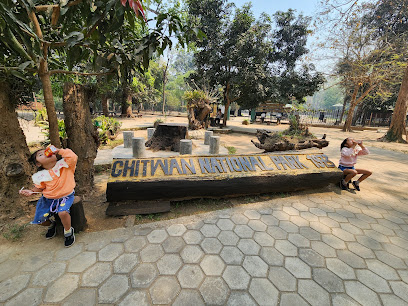
Elephant Breeding Center
Explore the Elephant Breeding Center in Chitwan for a unique wildlife experience, where conservation meets unforgettable encounters with baby elephants.
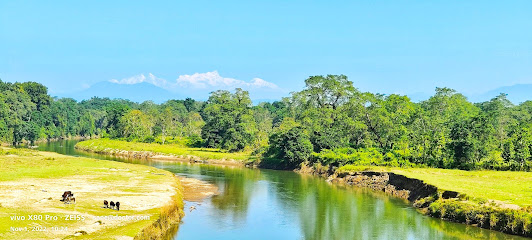
Green Park Chitwan
Discover the beauty of Chitwan National Park while enjoying a comforting stay at Green Park Chitwan, your perfect nature retreat in Nepal.

NARAYANI RIVERSIDE
Discover the serene beauty of Narayani Riverside in Bharatpur, a tranquil park perfect for nature lovers and wildlife enthusiasts alike.
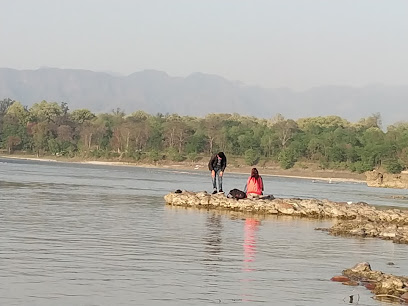
CG Landmark MALL
Explore the vibrant CG Landmark Mall in Bharatpur, a perfect blend of shopping, dining, and entertainment for every traveler.
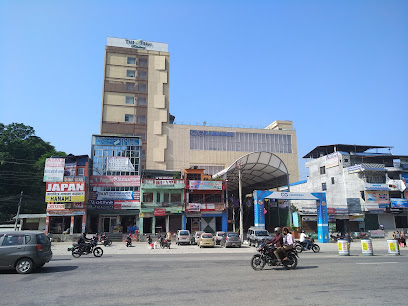
Landmark Forest-Park
Experience the tranquility and adventure at Landmark Forest-Park, nestled in the lush landscapes of Chitwan National Park, Nepal.
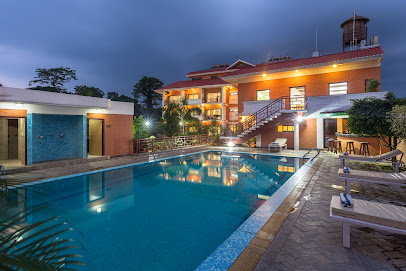
UMBRELLA STREET, PATIHANI
Experience the vibrant charm of Umbrella Street in Patihani, a colorful haven for art lovers and cultural explorers in Bharatpur, Nepal.
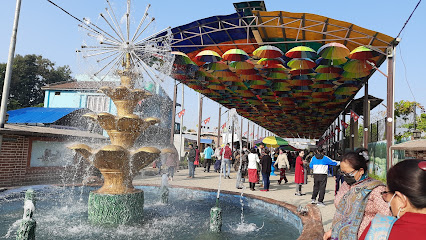
New Sauraha Tharu Cultural House
Discover the vibrant traditions of the Tharu people at New Sauraha Tharu Cultural House, a cultural gem in the heart of Sauraha, Nepal.
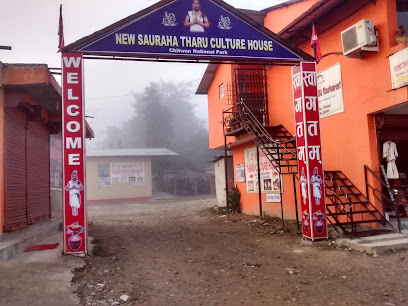
Jalbire Jharna
Explore Jalbire Jharna, a stunning waterfall in Nepal, surrounded by lush nature and adventure opportunities for every traveler.
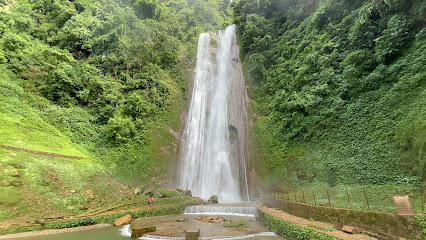
Chitwan National Park (Sauraha)
Explore Chitwan National Park's wildlife, including the majestic one-horned rhinoceros, in a breathtaking natural setting.
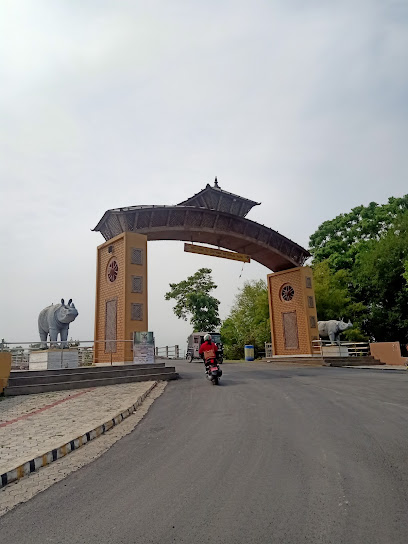
Sapana Village Lodge,Chitwan,Nepal.
Discover the serenity and cultural richness of Sapana Village Lodge in Chitwan, your perfect base for adventure and relaxation in Nepal.
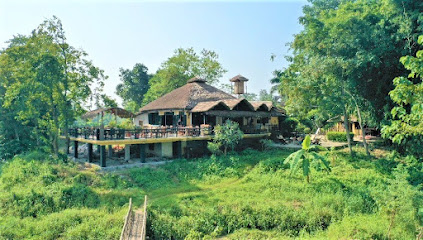
Kasara Chitwan
Discover tranquility at Kasara Chitwan, a luxurious resort hotel nestled near Chitwan National Park, perfect for adventure and relaxation.
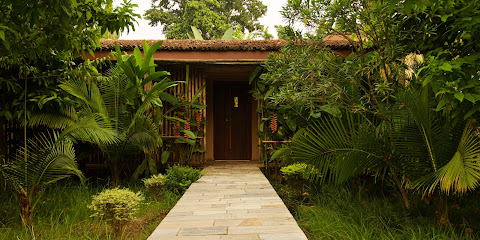
Sauraha Sunset Point
Experience the breathtaking beauty of Sauraha Sunset Point, where stunning sunsets over Chitwan's landscapes create unforgettable memories.
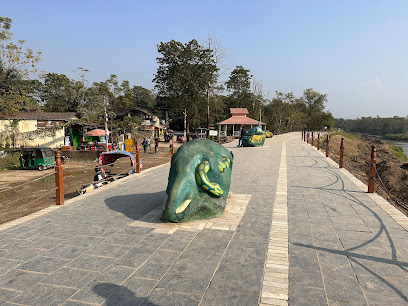
Tigerland Safari Resort
Immerse yourself in nature's wonders at Tigerland Safari Resort in Chitwan National Park, where adventure meets luxury in a stunning wilderness setting.

Jungle Safari Lodge
Experience the perfect blend of adventure and tranquility at Jungle Safari Lodge, your gateway to Nepal's breathtaking wildlife and culture.
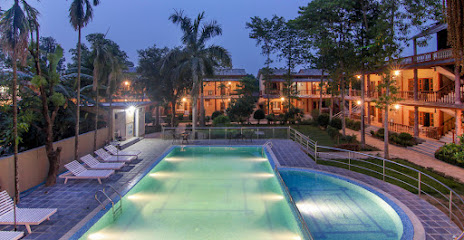
Unmissable attractions to see
Manakamana Temple
Discover the spiritual and cultural essence of Nepal at Manakamana Temple, a breathtaking destination rich in history and natural beauty.
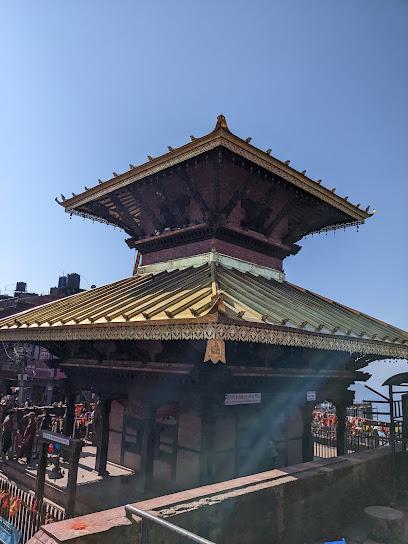
Chitwan National Park
Explore the rich wildlife and diverse ecosystems of Chitwan National Park, a UNESCO World Heritage Site, perfect for every nature lover.
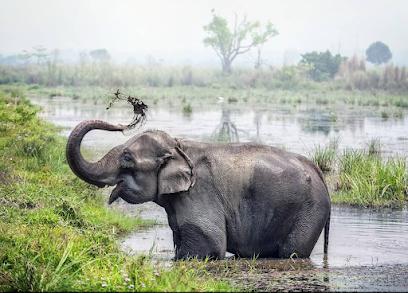
Elephant Breeding Center
Experience the magic of wildlife conservation at the Elephant Breeding Center, where you can witness the care and rehabilitation of majestic elephants in Chitwan National Park.
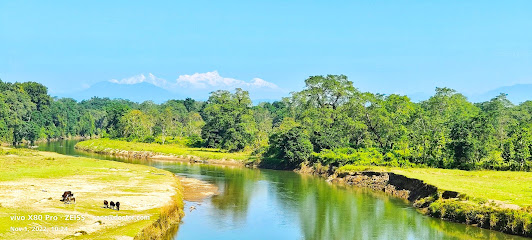
NARAYANI RIVERSIDE
Discover nature's tranquility at Narayani Riverside, a beautiful park in Bharatpur, perfect for relaxation, picnics, and birdwatching.
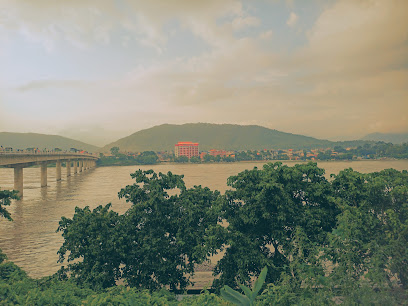
Chitwan National Park (Sauraha)
Explore the captivating wilderness of Chitwan National Park, a UNESCO World Heritage Site rich in wildlife and cultural experiences.
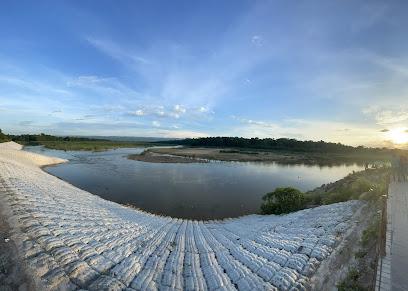
New Sauraha Tharu Cultural House
Explore the vibrant traditions of the Tharu community at the New Sauraha Tharu Cultural House in Sauraha, Nepal.
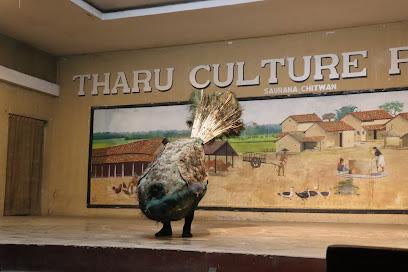
UMBRELLA STREET, PATIHANI
Explore the vibrant Umbrella Street in Patihani, Bharatpur—where art, culture, and color come together in a stunning visual display.
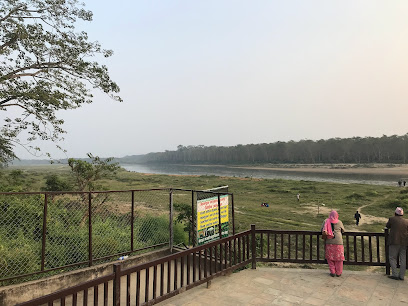
Sauraha Sunset Point
Experience the mesmerizing sunset at Sauraha Sunset Point, where nature and wildlife meet in a spectacular display of colors.
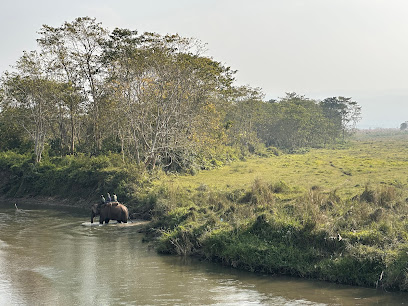
Puja Fun Park
Discover the excitement of Puja Fun Park in Bharatpur, where thrilling rides and fun activities await for a memorable family outing.
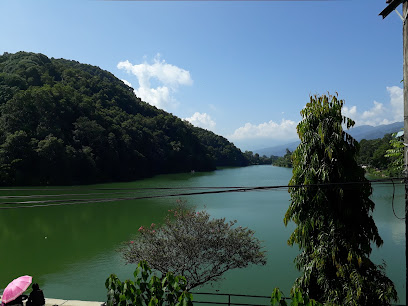
Tharu Cultural Museum & Research Center
Discover the vibrant traditions and history of the Tharu community at the Tharu Cultural Museum & Research Center in Ratnanagar, Nepal.
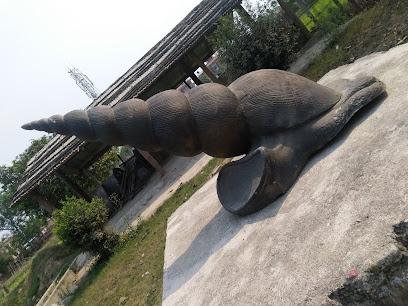
Narayani River Bank Buddha Statue
Experience serenity at the Narayani River Bank Buddha Statue, a breathtaking Buddhist temple in Bharatpur, Nepal, offering peace, culture, and stunning riverside views.
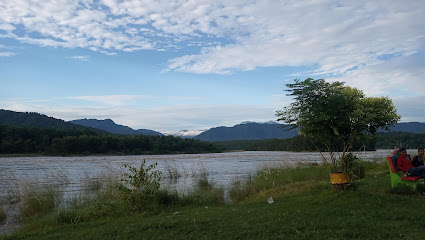
Batuli pokhari madhyawarti samudaayik ban upabhoktaa samuha
Discover the serene beauty of Batuli Pokhari, a community-managed lakeside attraction in Bharatpur, perfect for relaxation and cultural immersion.
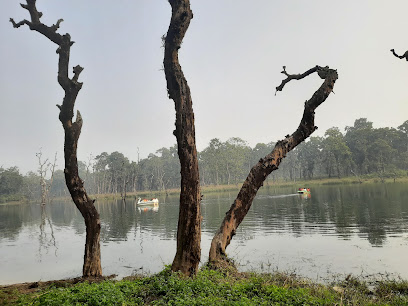
Narayani Beach
Discover the natural beauty and cultural richness of Narayani Beach, a tranquil park in Bharatpur, Nepal, perfect for relaxation and exploration.
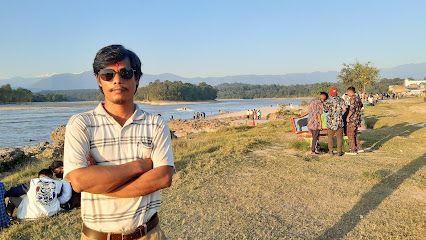
Chitwan Jungle Safari
Discover the breathtaking wilderness of Chitwan Jungle Safari, a UNESCO World Heritage Site, teeming with wildlife and rich cultural experiences.
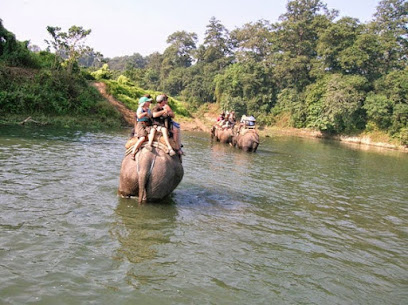
The Chitwan Jungle Guides(Crazy Tiger's Trek & Tours)
Explore Chitwan National Park with Chitwan Jungle Guides - Experience thrilling safaris, vibrant culture, and the rich biodiversity of Nepal.
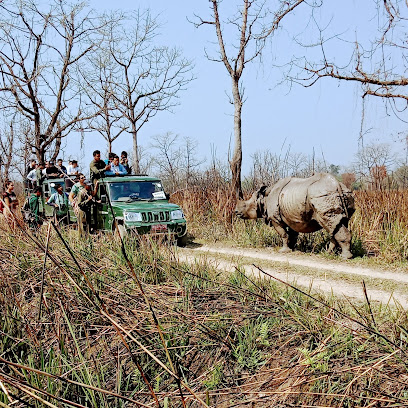
Essential places to dine
Bhetghat Restaurant
Discover the authentic flavors of Nepal at Bhetghat Restaurant in Bharatpur - where every meal is a celebration of culinary excellence.
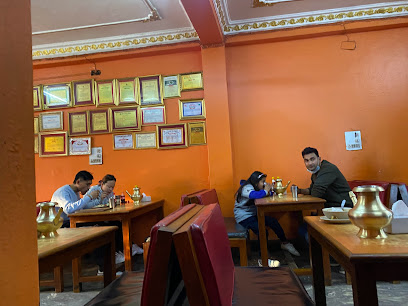
KC's Restaurant & Bar
Discover a blend of local delicacies and international flavors at KC's Restaurant & Bar in Ratnanagar.
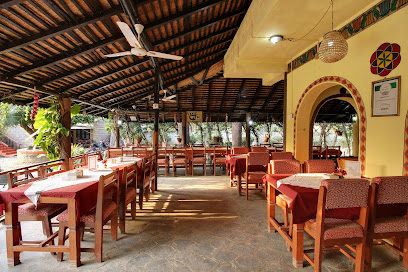
Tandoori Restaurant
Experience authentic Indian flavors at Tandoori Restaurant in Bharatpur, where every dish tells a story of tradition and taste.
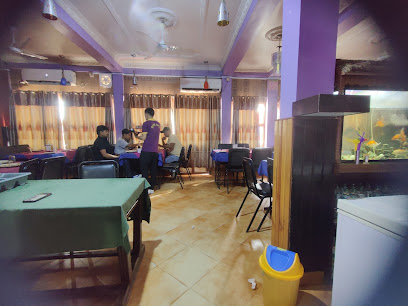
Ataali Restaurant and Bar
Experience authentic Nepali cuisine blended with international flavors at Ataali Restaurant and Bar in Bharatpur.
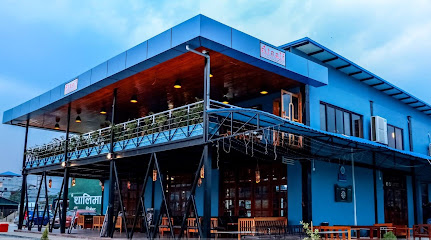
Friends Cafe
Experience the flavors of Nepal at Friends Cafe in Ratnanagar – where every meal feels like home.
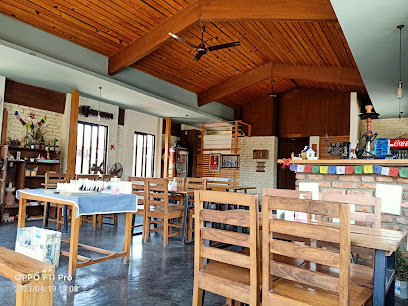
Chitwan Pate Dhido Restaurant
Experience authentic Nepalese flavors at Chitwan Pate Dhido Restaurant - your gateway to traditional dining in Bharatpur.
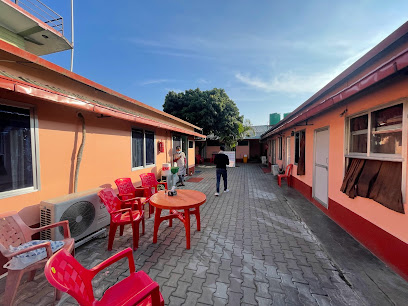
90's Greassy Spoon Restaurant, sauraha
Experience nostalgia at the 90's Greasy Spoon Restaurant in Sauraha - where comfort food meets retro charm.
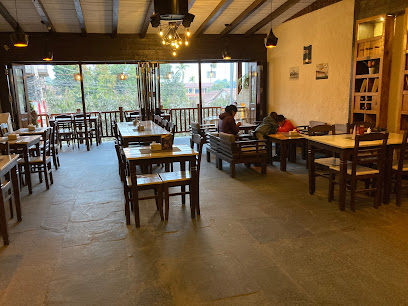
Jalapeno restaurant
Discover culinary delights at Jalapeno Restaurant in Ratnanagar—where local flavors meet international cuisine in an inviting setting.
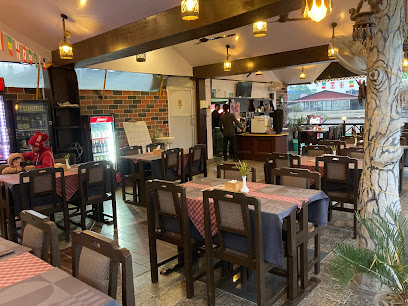
Shantiko Kitchen
Discover authentic Nepali flavors at Shantiko Kitchen in Ratnanagar—where every dish tells a story.
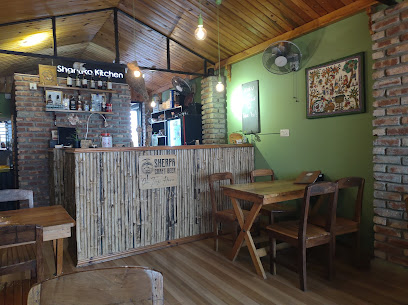
Tanahun Rishing Cottage And Restaurant
Experience authentic Nepali cuisine at Tanahun Rishing Cottage - where delicious food meets breathtaking views.
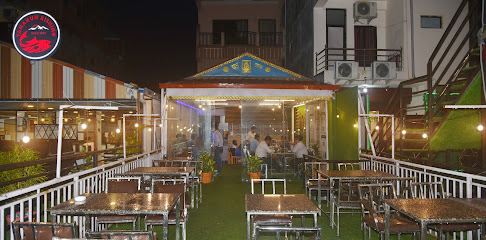
Bayleaf Restaurant sauraha
Experience the best of American cuisine at Bayleaf Restaurant Sauraha – where flavors meet hospitality in Ratnanagar.
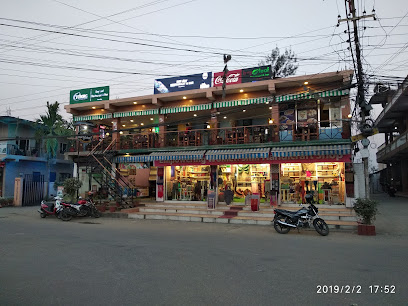
The Cave Restaurant
Experience the charm of The Cave Restaurant in Bharatpur—where exceptional grilled dishes meet a unique cave-like ambiance.
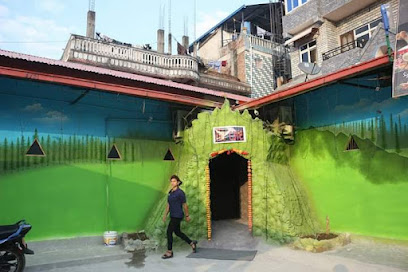
Chitwan Food Mart
Experience authentic Nepali flavors and international delights at Chitwan Food Mart – where every meal tells a story.
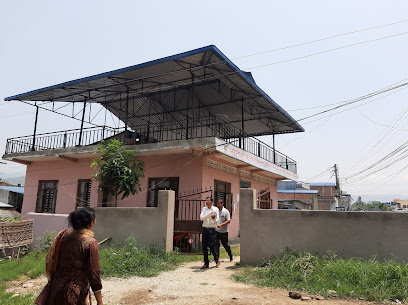
Royal Kitchen and bar
Experience the best of Nepali cuisine at Royal Kitchen and Bar in Ratnanagar—where tradition meets taste in every dish.
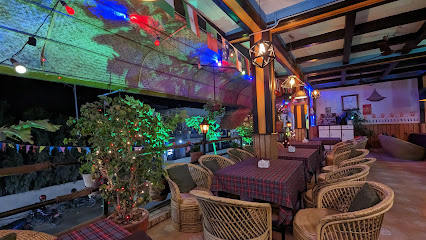
Sunset View Restaurant and Bar
Experience exceptional dining at Sunset View Restaurant and Bar in Ratnanagar—where delectable food meets breathtaking sunset views.
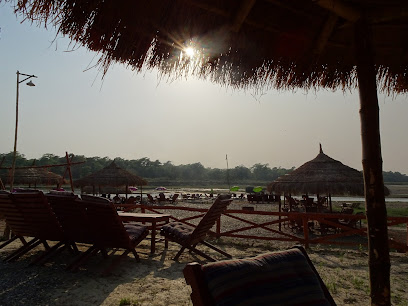
Markets, malls and hidden boutiques
Le Fabec Chitwan
Explore the vibrant clothing styles at Le Fabec Chitwan, where modern fashion meets traditional Nepali craftsmanship in the heart of Bharatpur.

Glitterz Fashion Store
Discover unique fashion at Glitterz Fashion Store in Bharatpur, where local craftsmanship meets contemporary style in a vibrant shopping experience.

LAVISH CHITWAN
Experience the essence of Nepalese fashion at Lavish Chitwan, where vibrant textiles meet contemporary style in a charming shopping destination.
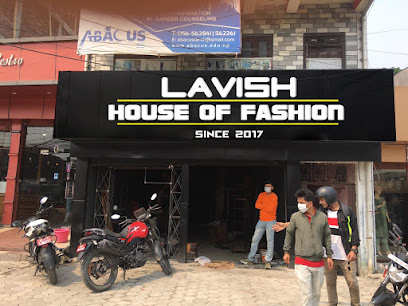
Made In Nepal Stores Pulchowk,Narayanghat
Discover authentic Nepali clothing and handicrafts at Made In Nepal Stores Pulchowk, a vibrant shopping destination in Narayanghat.
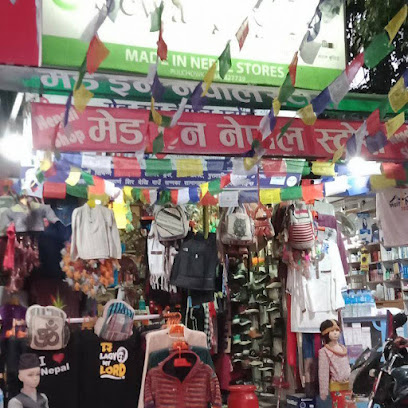
The Happy House Fair Trade
Explore the vibrant world of fair trade handicrafts at The Happy House Fair Trade in Bachhauli, where every purchase supports local artisans and sustainable practices.
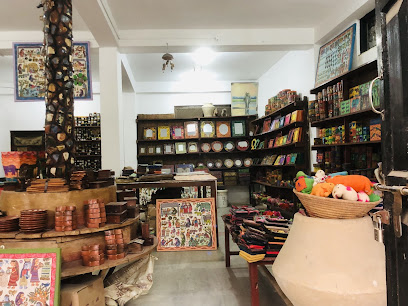
Baby Land
Explore Baby Land in Bharatpur for a delightful shopping experience filled with high-quality baby products and unique gifts for families.
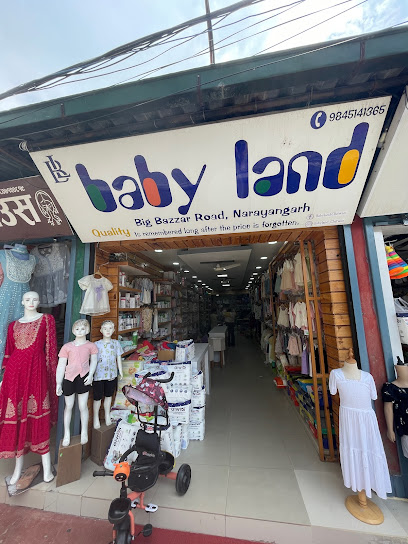
Royal Boutique Chitwan
Discover the latest trends in women's fashion at Royal Boutique Chitwan, where local culture meets contemporary style.
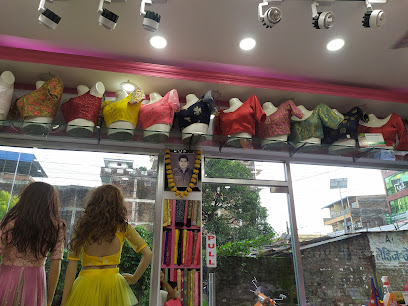
Kumuda - The Crafty Boutique
Discover the essence of Nepalese craftsmanship at Kumuda - The Crafty Boutique, where unique handmade treasures await you in Bharatpur.
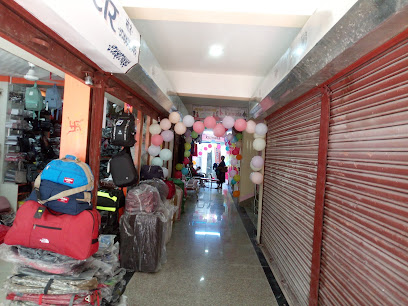
Basemark_chitwan
Explore the latest trends in women's fashion at Basemark Chitwan, where local style meets contemporary design in Bharatpur, Nepal.
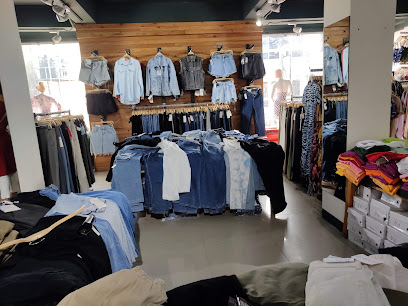
Everything Elephant
Explore Everything Elephant in Ratnanagar for unique Nepalese fashion, blending tradition with modern style in a vibrant shopping experience.
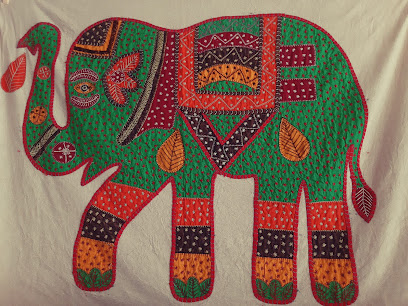
Suryamukhi gift house
Discover the charm of Nepalese craftsmanship at Suryamukhi Gift House, your ultimate destination for unique gifts and souvenirs in Bharatpur.
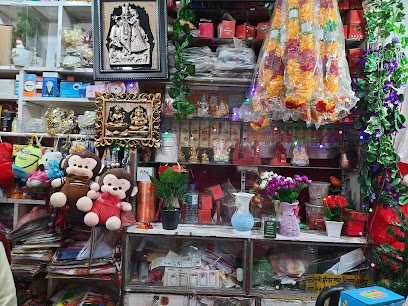
Aayush Fancy Store
Discover unique fashion at Aayush Fancy Store in Bharatpur, where traditional styles meet modern trends for an unforgettable shopping experience.

URBAN STORE
Explore Urban Store in Bharatpur for an exquisite blend of traditional and contemporary clothing, capturing the vibrant spirit of Nepalese fashion.

Unique fashion
Discover unique clothing styles and vibrant local fashion at Unique Fashion in Bharatpur, where tradition and modernity beautifully intertwine.
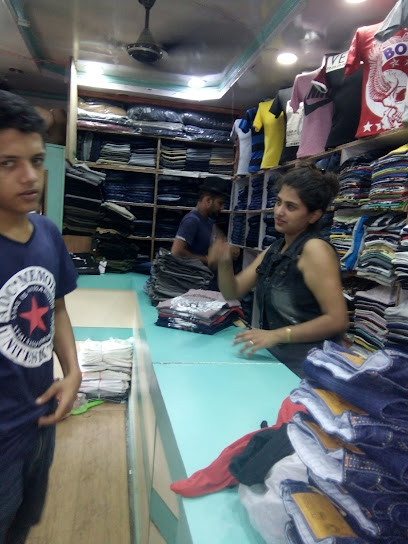
Sindur Fashion & Boutique
Explore the vibrant styles and unique handicrafts of Nepal at Sindur Fashion & Boutique in Bharatpur, a must-visit for every savvy traveler.

Essential bars & hidden hideouts
The Galaxy Empire Lounge and Bar
Discover the vibrant atmosphere of The Galaxy Empire Lounge and Bar in Bharatpur, where exquisite cuisine meets an inviting lounge experience.
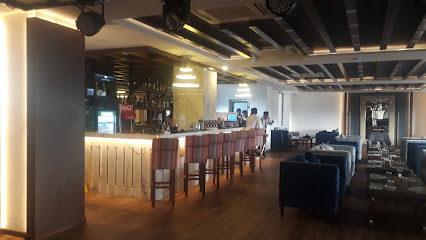
The Cave Restaurant
Experience the best of grill cuisine at The Cave Restaurant in Bharatpur, where ambiance meets flavor in a unique dining adventure.
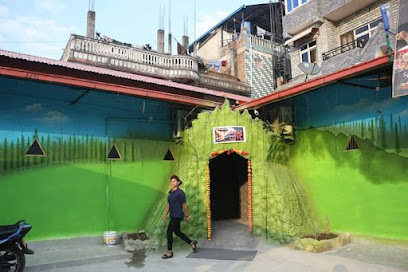
Option Restaurant
Experience the vibrant flavors of Nepal at Option Restaurant, where grilled specialties and warm hospitality await travelers in Ratnanagar.
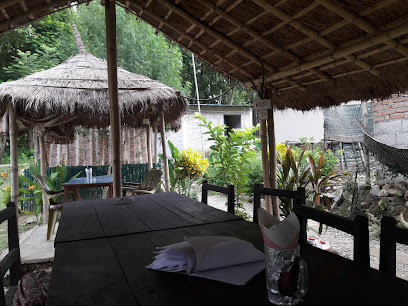
Red Horse Pub & Music Bar
Discover the vibrant nightlife at Red Horse Pub & Music Bar in Ratnanagar, where live music meets a lively atmosphere and delicious drinks.
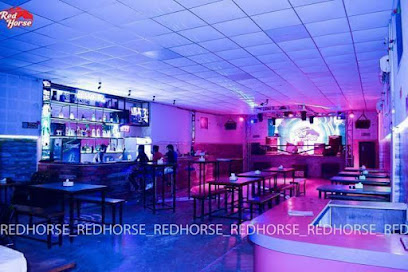
Green Vill Bar
Discover the lively atmosphere of Green Vill Bar in Ratnanagar, where refreshing drinks and friendly vibes await every traveler.
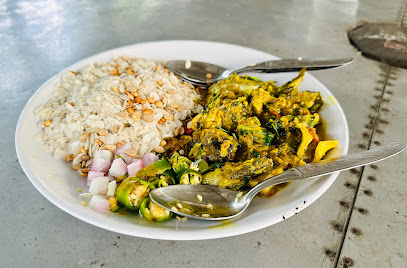
Ahuna
Experience the vibrant nightlife at Ahuna, Bharatpur's premier bar offering delightful drinks and a welcoming atmosphere.
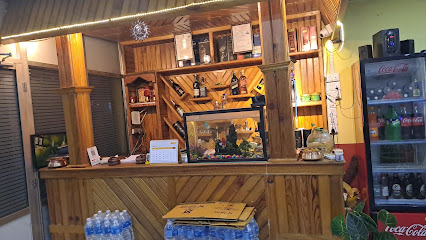
Ohrhi Lounge & Bar
Discover Ohrhi Lounge & Bar, a cozy retreat in Bharatpur, Nepal, offering delightful drinks and a relaxing atmosphere amidst stunning views.

Riverside Restro Bar and Snooker
Discover the vibrant atmosphere of Riverside Restro Bar and Snooker, where local culture meets entertainment in Ratnanagar.
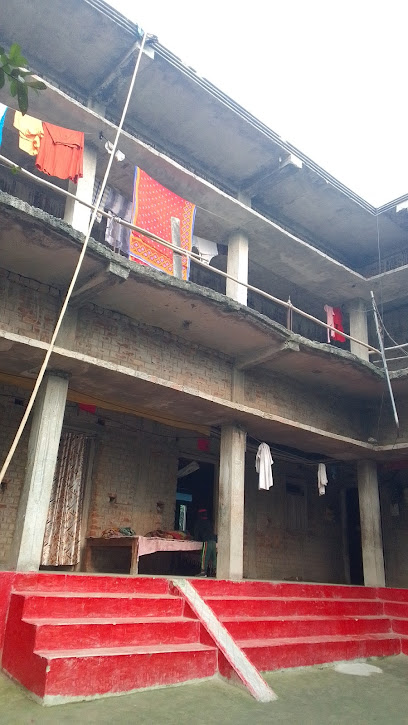
Sagun Wine Shop
Experience the essence of local and international wines at Sagun Wine Shop in Jutpani, where culture meets flavor.
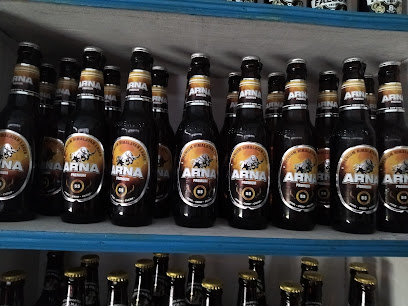
Galli Restro & Bar
Experience the vibrant nightlife of Bharatpur at Galli Restro & Bar, where local flavors meet a lively atmosphere for an unforgettable evening.
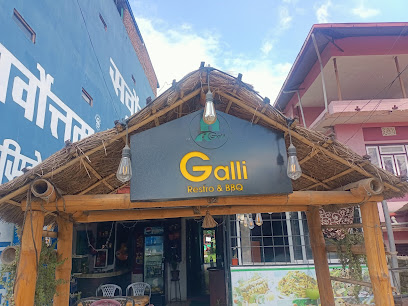
Newari Kitchen Bar
Discover the rich flavors of Newari cuisine at Newari Kitchen Bar, a vibrant spot in Ratnanagar perfect for food enthusiasts and cultural explorers.
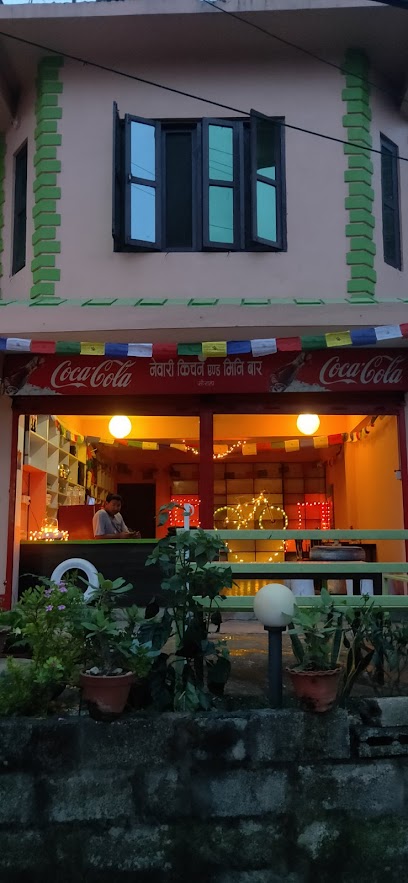
chitwan village khaja ghar
Experience the vibrant culture and flavors of Nepal at Chitwan Village Khaja Ghar, a top destination in Bharatpur for drinks and local delights.
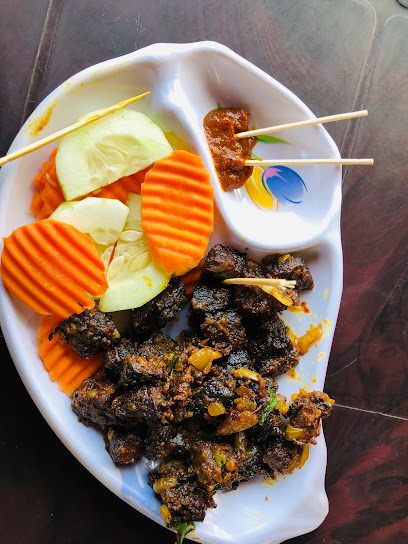
Go down cafe
Experience the vibrant atmosphere of Go Down Cafe in Ratnanagar, a perfect spot for travelers to unwind with refreshing drinks.

Best Food
Experience the vibrant flavors of Ratnanagar at Best Food Bar, a trendy spot for delicious food and refreshing drinks.

Local Phrases
-
- Helloनमस्ते
[namaste] - Goodbyeछोडौं
[chhodau] - Yesहो
[ho] - Noहोइन
[hoin] - Please/You're welcomeकृपया
[kripya] - Thank youधन्यवाद
[dhanyabad] - Excuse me/Sorryमाफ गर्नुहोस्
[maaf garnuhos] - How are you?तपाइलाई संग छ?
[tapailai sang cha?] - Fine. And you?राम्रो छ। र तपाईं?
[ramro cha. ra tapai?] - Do you speak English?तपाईं अंग्रेजी बोल्नुहुन्छ?
[tapai angreji bolnuhuncha?] - I don't understandमलाई सम्झिन्छैन
[malai samjhinchain]
- Helloनमस्ते
-
- I'd like to see the menu, pleaseकृपया मेनु हेर्न चाहन्छु
[kripya menu hern chahanchu] - I don't eat meatम भांसा खाँदिन
[ma bhasa khandin] - Cheers!चियर्स!
[chiyars!] - I would like to pay, pleaseकृपया भुक्तानी गर्न चाहन्छु
[kripya bhuktani garn chahanchu]
- I'd like to see the menu, pleaseकृपया मेनु हेर्न चाहन्छु
-
- Help!मद्दत गर्नुहोस्!
[maddat garnuhos!] - Go away!जाओ!
[jao!] - Call the Police!पोलिस बोलाउनुहोस्!
[polis bolaunuhos!] - Call a doctor!डाक्टरलाई बोलाउनुहोस्!
[daktar lai bolaunuhos!] - I'm lostमलाई हरायो
[malai harayo] - I'm illमलाई रोग लागेको छ
[malai rog lageko cha]
- Help!मद्दत गर्नुहोस्!
-
- I'd like to buy...म खरीद गर्न चाहन्छु...
[ma khareed garn chahanchu...] - I'm just lookingम सिर्जना गर्न गएको छु
[ma sirjana garn gaeko chu] - How much is it?यसको मूल्य कति हो?
[yasko mulya kati ho?] - That's too expensiveत्यो धेरै महँगो छ
[tyo dherai mahango cha] - Can you lower the price?के तपाईं मूल्य कम गर्न सक्नुहुन्छ?
[ke tapai mulya kam garn saknuhuncha?]
- I'd like to buy...म खरीद गर्न चाहन्छु...
-
- What time is it?कति बजेको छ?
[kati bajeko cha?] - It's one o'clockएक बजे भएको छ
[ek baje bhaeko cha] - Half past (10)दस बजे देखि अर्ध घण्टा भएको छ
[das baje dekhi ardha ghanta bhaeko cha] - Morningबिहान
[bihan] - Afternoonदिउँसो
[diunso] - Eveningसाँझ
[sanh] - Yesterdayहिजो
[hijo] - Todayआज
[aaj] - Tomorrowभोलि
[bholi] - 1एक
[ek] - 2दुई
[dui] - 3तीन
[tin] - 4चार
[char] - 5पाँच
[paanch] - 6छ
[chha] - 7सात
[saat] - 8आठ
[aath] - 9नौ
[nau] - 10दस
[das]
- What time is it?कति बजेको छ?
-
- Where's a/the...?...कहाँ छ?
[...kaha cha?] - What's the address?ठेगाना के हो?
[thegana ke ho?] - Can you show me (on the map)?के तपाईं मलाई देखाउन सक्नुहुन्छ (नक्सामा)?
[ke tapai malai dekhaun saknuhuncha (naksama)?] - When's the next (bus)?अर्को (बस) कहाँ आउँछ?
[arko (bas) kaha aauncha?] - A ticket (to ....)एक टिकट (.... लाई)
[ek ticket (.... lai)]
- Where's a/the...?...कहाँ छ?
History of Chitwan
-
Chitwan, nestled in the Terai lowlands of Nepal, has a rich history of early human settlement. The region has been home to indigenous Tharu people for centuries, who have adapted their lifestyles to the dense forests and the floodplains of the Narayani River. The Tharu community is known for their unique culture, including traditional dances, crafts, and their resistance to malaria, which once plagued the region.
-
During the 18th century, Chitwan came under the control of the Shah Dynasty, which unified Nepal. The dense forests of Chitwan served as a royal hunting ground for the ruling elites. The Chitwan Valley was sparsely populated, and the forests were teeming with wildlife, making it an ideal location for royal hunting expeditions.
-
In the mid-20th century, the Nepalese government, with assistance from international organizations, launched a successful campaign to eradicate malaria from the Chitwan Valley. This effort transformed Chitwan, making it accessible for settlement and agriculture. The Rapti Valley Development Project facilitated the migration of people from the hilly regions to Chitwan, significantly altering the demographic and cultural landscape.
-
In 1973, Chitwan National Park was established as Nepal’s first national park, recognizing the need to protect the region's unique biodiversity. The park, which is a UNESCO World Heritage Site, covers 932 square kilometers and is home to numerous endangered species, including the Bengal tiger, one-horned rhinoceros, and gharial crocodile. The establishment of the park has also helped preserve the traditional lifestyles of the indigenous Tharu people.
-
Chitwan is a melting pot of cultures, with influences from various ethnic groups, including the Tharu, Brahmin, Chhetri, and others. The region is known for its vibrant festivals such as Maghi, celebrated by the Tharu community to mark the New Year, and Chhath, a significant festival dedicated to the Sun God. These festivals are marked by elaborate rituals, traditional music, and dances, showcasing the rich cultural heritage of Chitwan.
-
In recent decades, Chitwan has emerged as a popular tourist destination, attracting visitors with its rich wildlife, cultural heritage, and natural beauty. The development of tourism infrastructure, including lodges, safari tours, and cultural programs, has provided economic opportunities for the local population. However, it has also posed challenges in balancing conservation efforts with the demands of tourism.
Chitwan Essentials
-
Chitwan is located in the southwestern part of Nepal. The nearest major airport is Tribhuvan International Airport in Kathmandu, approximately 160 kilometers away. From Kathmandu, you can take a domestic flight to Bharatpur, which is just 10 kilometers from Chitwan. Alternatively, you can travel by bus or private car from Kathmandu to Chitwan, a journey that typically takes 5 to 6 hours by road. There are also direct bus services from Pokhara to Chitwan, which take around 4 to 5 hours.
-
Within Chitwan, local transportation options include rickshaws, taxis, and bicycles. For exploring the Chitwan National Park, guided jeep safaris, canoe rides, and elephant rides are popular choices. Additionally, some hotels and lodges offer shuttle services to major attractions. Renting a bicycle is a convenient and eco-friendly way to explore the town and nearby areas at your own pace.
-
The official currency in Nepal is the Nepalese Rupee (NPR). While credit cards are accepted in some hotels, restaurants, and shops, it is advisable to carry cash, especially in smaller establishments and rural areas. ATMs are available in Chitwan, but it's wise to withdraw sufficient cash before heading to remote locations. Currency exchange services are also available in major towns.
-
Chitwan is generally a safe destination for tourists. However, it is advisable to take standard precautions such as avoiding walking alone at night in unfamiliar areas and keeping an eye on your belongings in crowded places. Be cautious when dealing with street vendors and ensure you are using registered guides and services. There are no specific high-crime areas targeting tourists, but it is always best to stay vigilant and aware of your surroundings.
-
In case of emergency, dial 100 for police assistance or 102 for medical emergencies. The local police station and medical facilities are available in Chitwan. It is recommended to have travel insurance that covers medical emergencies. For minor health issues, there are pharmacies in the town where you can purchase over-the-counter medications. Additionally, many hotels have contact information for local doctors and emergency services.
-
Fashion: Do dress modestly, especially when visiting religious sites. Avoid wearing revealing clothing. Religion: Do respect local customs and traditions. Always remove your shoes before entering temples and religious sites. Public Transport: Do be respectful and give up your seat to elderly passengers. Don't eat or drink on public transport. Greetings: Do greet people with a 'Namaste' (a slight bow with palms pressed together). Eating & Drinking: Do try local delicacies and accept food offerings graciously. Don't refuse hospitality, as it is considered impolite.
-
To experience Chitwan like a local, visit the local markets where you can buy fresh produce and traditional Nepalese goods. Engage with locals, as they are often friendly and willing to share stories about the area's history and culture. Don't miss visiting the Chitwan National Park for wildlife safaris and bird watching. For a unique experience, take a canoe ride on the Rapti River and enjoy the serene natural beauty of the region.
Trending Landmark in Chitwan
-
Chitwan National Park
-
Elephant Breeding Center
-
Green Park Chitwan
-
NARAYANI RIVERSIDE
-
CG Landmark MALL
-
Landmark Forest-Park
-
UMBRELLA STREET, PATIHANI
-
New Sauraha Tharu Cultural House
-
Jalbire Jharna
-
Chitwan National Park (Sauraha)
-
Sapana Village Lodge,Chitwan,Nepal.
-
Kasara Chitwan
-
Sauraha Sunset Point
-
Tigerland Safari Resort
-
Jungle Safari Lodge
Nearby Cities to Chitwan
-
Things To Do in Bandipur
-
Things To Do in Gorkha
-
Things To Do in Pokhara
-
Things To Do in Patan
-
Things To Do in Kathmandu
-
Things To Do in Bhaktapur
-
Things To Do in Nagarkot
-
Things To Do in Lumbini
-
Things To Do in Patna
-
Things To Do in Namche Bazaar
-
Things To Do in Varanasi
-
Things To Do in Lucknow
-
Things To Do in Darjeeling
-
Things To Do in Siliguri
-
Things To Do in Kanpur












